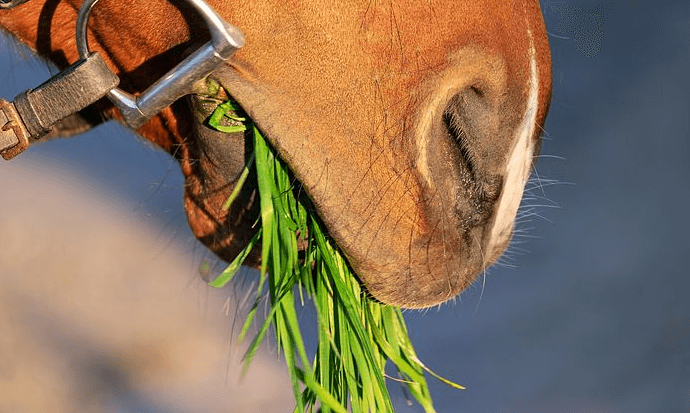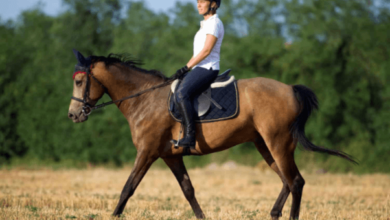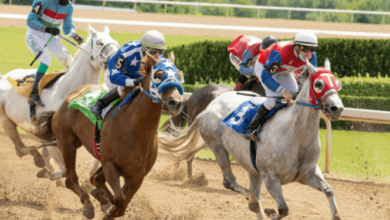What diet and nutrition plans do you implement for your racing horses?

Ensuring that racing horses maintain optimal health and peak performance necessitates a meticulously balanced diet and nutrition plan. A well-structured feeding regime can significantly impact a horse’s speed, stamina, and overall well-being. This article delves into the critical components of an ideal diet for racing horses, highlighting key nutrients, feeding practices, and common supplements.
Key Nutrients for Racing Horses
- Energy Sources:
- Carbohydrates: The primary source of energy for racing horses, carbohydrates are vital for sustaining high-intensity exercise. Grains such as oats, barley, and corn are rich in starch, providing readily available energy. However, it’s crucial to manage the quantity to prevent digestive issues.
- Fats: A concentrated energy source, fats provide more than twice the energy per unit weight than carbohydrates. Incorporating fats through vegetable oils or rice bran can enhance endurance without increasing the risk of colic or laminitis associated with high grain diets.
- Proteins:
- Proteins are essential for muscle development and repair. High-quality protein sources include soybean meal, alfalfa, and legumes. Amino acids like lysine and methionine play a pivotal role in muscle recovery post-exercise.
- Vitamins:
- Vitamin E and C: These antioxidants help combat oxidative stress caused by intense physical activity, supporting muscle recovery and immune function.
- B-Vitamins: Crucial for energy metabolism, B-vitamins, particularly thiamine (B1) and riboflavin (B2), aid in converting feed into usable energy.
- Minerals:
- Electrolytes: Sodium, potassium, and chloride are vital for maintaining hydration and nerve function. Electrolyte balance is crucial, especially during hot weather or intense training sessions.
- Calcium and Phosphorus: These minerals are integral for bone health and muscular function. The ratio of calcium to phosphorus must be balanced (ideally around 2:1) to ensure proper absorption and utilization.
Feeding Practices
- Forage First:
- High-quality forage should form the foundation of a racing horse’s diet. Hay, pasture, and haylage provide essential fiber, promoting healthy digestion and nutrient absorption. Alfalfa hay is particularly beneficial due to its higher protein and calcium content.
- Concentrates:
- Grains and commercial feeds are typically added to provide additional energy and nutrients that forage alone may not supply. These concentrates should be tailored to the horse’s individual needs, training intensity, and metabolic rate.
- Small, Frequent Meals:
- To prevent digestive issues and optimize nutrient absorption, it’s best to feed racing horses small, frequent meals rather than large quantities at once. This approach mimics their natural grazing behavior.
- Water:
- Adequate hydration is critical. Fresh, clean water should be available at all times. During intense training or hot weather, monitoring and encouraging water intake can prevent dehydration and related complications.
Common Supplements
- Electrolytes:
- Given the significant loss of electrolytes through sweat, especially in hot climates or during strenuous exercise, supplementation can help maintain electrolyte balance and prevent dehydration.
- Joint Supplements:
- Glucosamine, chondroitin sulfate, and hyaluronic acid are commonly used to support joint health, reducing the risk of arthritis and other joint-related issues that can impede performance.
- Omega-3 Fatty Acids:
- Found in flaxseed and fish oil, omega-3 fatty acids have anti-inflammatory properties that can support overall health and reduce exercise-induced inflammation.
- Probiotics and Prebiotics:
- These supplements support gut health, enhancing nutrient absorption and reducing the risk of gastrointestinal disturbances.
Monitoring and Adjusting the Diet
A racing horse’s dietary needs can vary based on factors such as age, weight, training intensity, and individual metabolism. Regular monitoring of body condition, weight, and performance, coupled with periodic veterinary assessments, can help fine-tune the diet to ensure optimal health and performance.
In conclusion, a balanced diet and well-planned nutrition strategy are fundamental to the success and well-being of racing horses. By focusing on key nutrients, implementing effective feeding practices, and considering appropriate supplements, trainers and owners can ensure their horses achieve peak performance and maintain excellent health throughout their racing careers.







